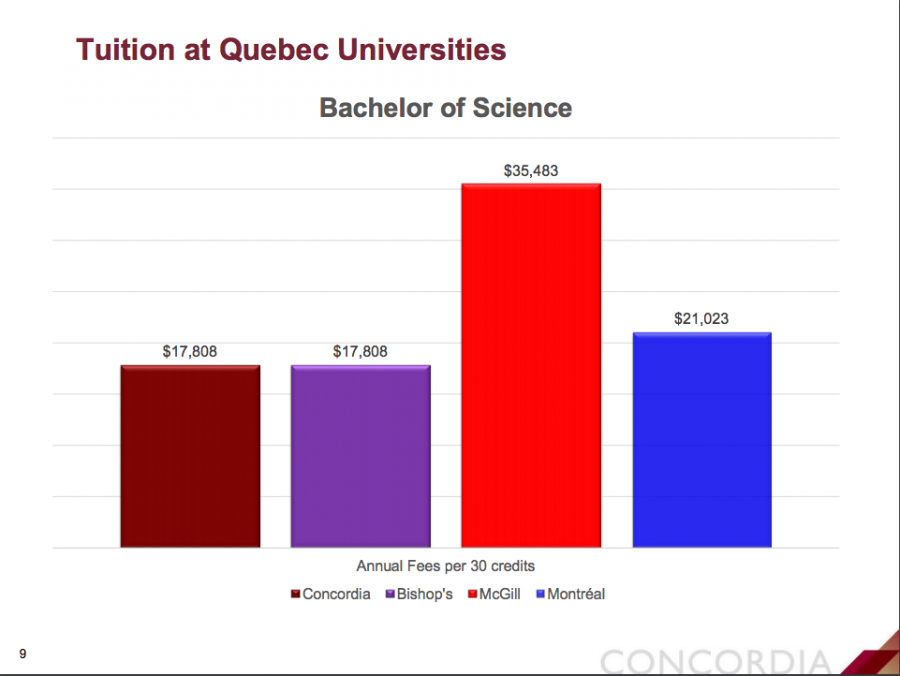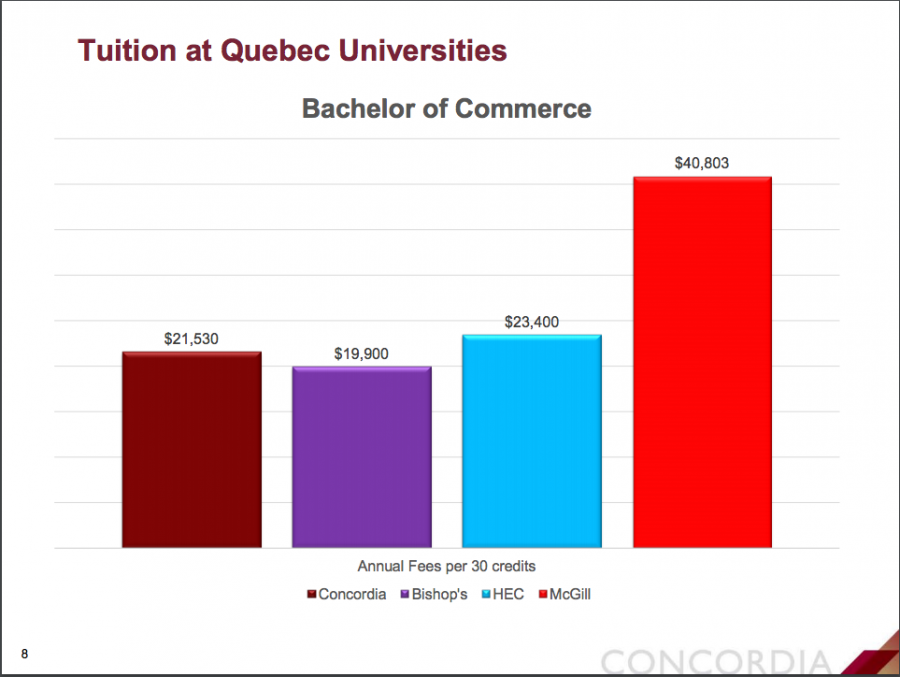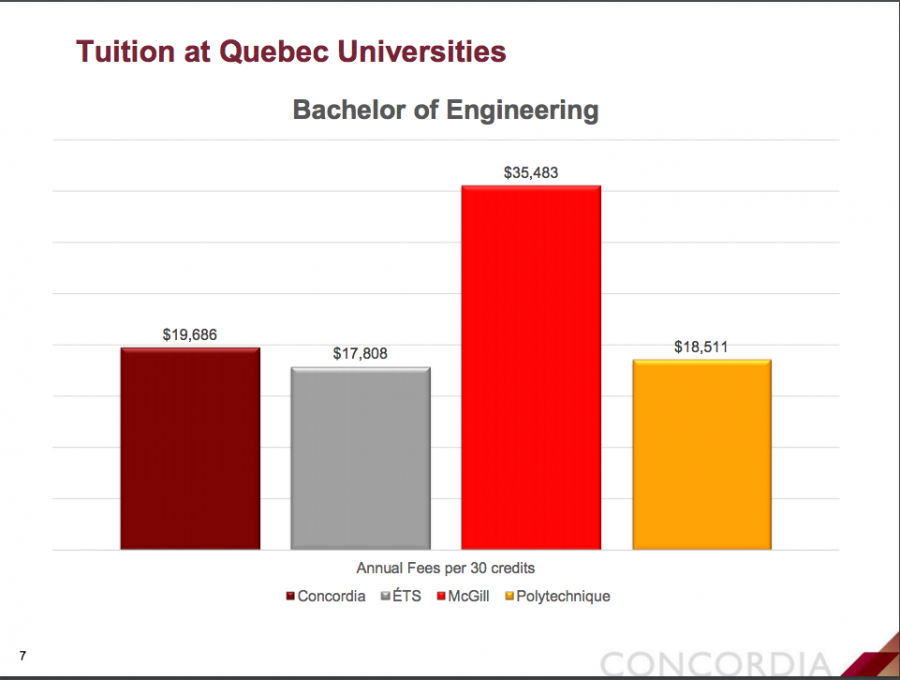Concordia BoG Makes Cohort Pricing Proposal Public
Board of Governors Set to Approve Plan That Proposes Tuition Increases of Seven, Nine Per Cent
The proposal for Concordia’s cohort pricing plan for international undergraduate students in deregulated programs was made public Monday morning.
This story has been updated.
The Concordia Board of Governors will vote Wednesday on potential tuition hikes for students in certain deregulated programs.
In 2008, the Quebec government deregulated engineering and computer science, business, science, mathematics and administration.
If the plan were approved, starting next year, incoming students in engineering and computer science would pay tuition rates nine per cent higher than they are now. New students in business and science would see an increase of about seven per cent.
The university explains that students would continue to pay these amounts for the duration of their degrees, or four years for 120 credits. When asked about students who may take longer to finish their degrees, university spokesperson Chris Mota explained that their tuition will remain that of their initial cohort, albeit “subject to some conditions.”
They are toting stability as one of the benefits of cohort pricing.
The proposal states they found that international students find guaranteed tuition to be a key factor in choosing a university after a series of surveys conducted in 2012, 2014 and 2016.
The document also reasons that higher tuition rates increase the perceived prestige of the institution, keeping the university competitive.
Mota said in an email that this assumption is based off international recruiters reporting that “students and their parents make a direct correlation between tuition levels and the perception of higher quality.”
“I think students care much more about being able to go to university than the prestige they may get based on how much they’re paying for it,” said Concordia Student Union representative Lucinda Marshall-Kiparissis.
“There are a myriad of ways for the university to advertise the quality of its programming beyond deciding that if it’s more inaccessible, than it’s more prestigious or elite. It’s a mind boggling argument,” she said.
Kiparissis also explained that since the documents were released, the CSU has been trying to build projections as to what increases can look like for future cohorts.
“The only thing we can go in is that it’s jumping from [nine per cent] between this year and next year for engineering, that they’re going to do that every year. If it’s jumping seven per cent for business, then it’s going to do that every year. If it’s jumping seven per cent for [sciences], then it’s probably going to do that every year,” she explained. “But we can only make assumptions because we’re not being provided with this information.”
She also pointed out that these increases are comparable to what students protested against in 2012.
The Board of Governors meeting is at 4:00 p.m. on Wednesday, Dec. 14. An observer’s room has been set up in MB-1.210 as non-governors are barred from the meeting.

_1_900_675_90.jpg)






4_600_375_90_s_c1.jpg)
_900_642_90_600_375_90_s_c1.jpg)
_600_375_90_s_c1.jpg)